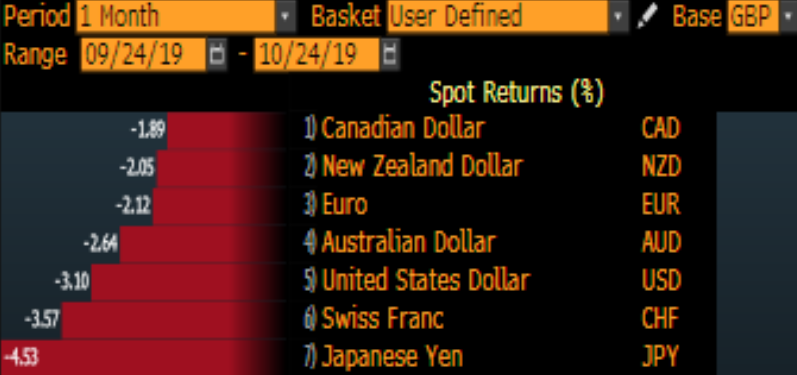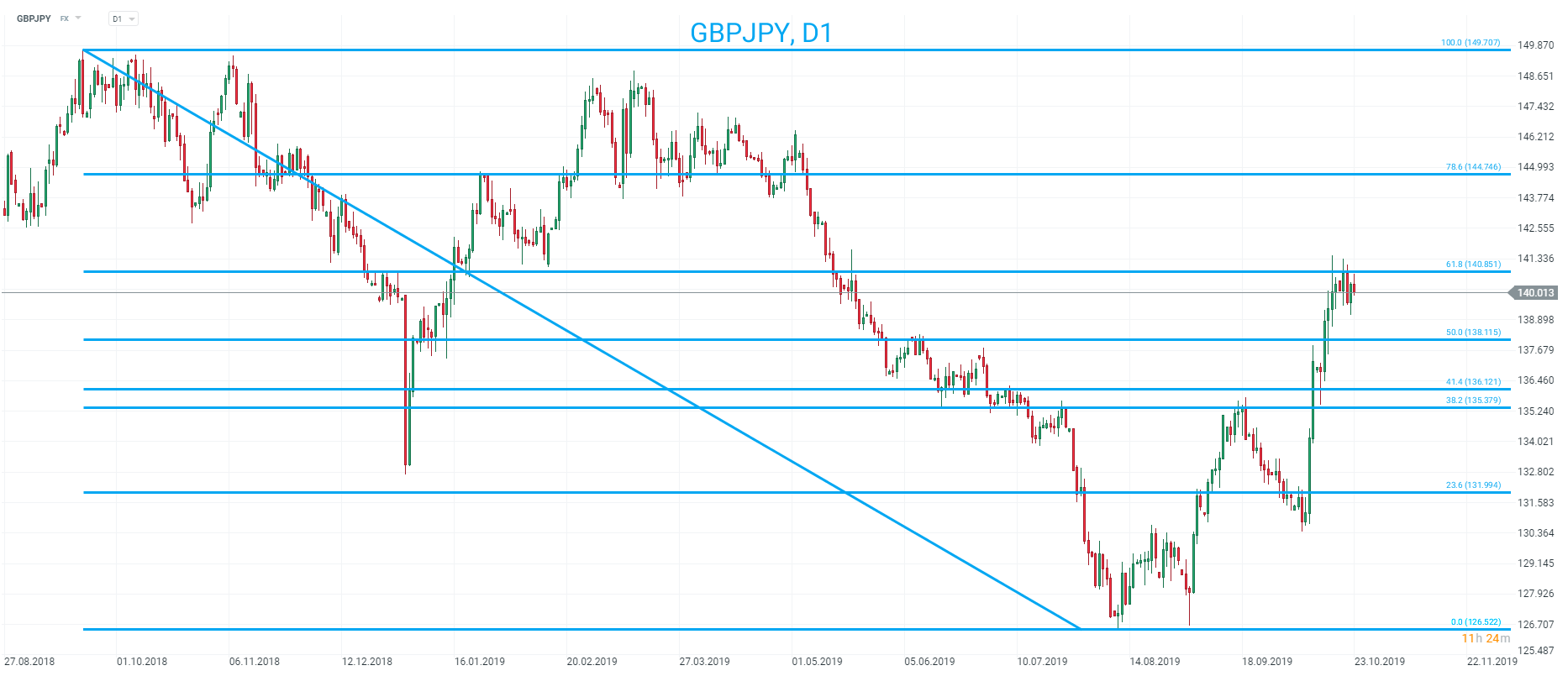While the current week has once more been dominated by Brexit headlines, markets on the whole appear to be consolidating after the wild swings seen in previous weeks. In this analysis we will look at the current state of play and focus on what to look out for going forward that could drive GBP pairs.
Summary:
-
GBP the best performing FX major of late
-
EU grant Brexit extension to January 31st 2020
-
Two possible paths forward; Boris’s deal passes or GE

The pound has enjoyed strong gains in the past month with the largest appreciation seen in the GBPJPY and GBPCHF pairs. Source: Bloomberg
News that the EU are to grant another extension to the Article 50 deadline shouldn’t come as too much of a surprise as the recent defeat in UK Parliament for the government meant that an orderly exit by the previous deadline of October 31st was all but ruled out. The new deadline is now 31st January 2020 and given the 3-month extension there are two broad routes that may be pursued going forward.
-
Press ahead with WAB
Recent events in the House of Commons have brought us to the current situation with the rejection of the program motion bill essentially ending any hopes of PM Johnson delivering on his “do or die” pledge to deliver Brexit by the end of the month. However, before that there was a landmark moment with a Withdrawal Agreement Bill (WAB) receiving parliamentary backing for the first time. On the face of it this means that there appears to be enough support for Boris’s deal to pass into law with the only issue being the October 31st deadline. Therefore, there’s a feeling that the bill’s progress will be resumed from its current state of limbo and could well by passed into law in just a few weeks time, now that an extension has been granted. Investment banks including JP Morgan and Goldman Sachs have since stated that this is their base case scenario, and it would likely give the pound another boost if it transpires.
-
Government calls GE
While the first path clearly looks plausible, if Brexit has taught anything it is that politics is rarely as straightforward as it seems. While the WAB received a larger than expected majority of 30 there is a feeling that this wasn’t a “clean” vote and some of those who supported it did so, safe in the knowledge that they would subsequently vote against the program motion and effectively halt the government’s plans to pass the bill. Furthermore, the bill had yet to reach the stage where possible amendments such as a customs union or 2nd referendum could be attached and therefore it is far from given that its current guise wouldn’t be changed significantly and to a point where the government would no longer support it - they can withdraw the bill if they disagree with any amendments.
The most obvious way around this hurdle would be if the government moved to call a general election (GE) in a bid to seek to change the composition of MPs and secure a more favourable level of parliamentary arithmetic. The risk here is clear, with it being far from guaranteed that the government would gain seats and additional MPs who support their deal - something PM Johnson’s predecessor Theresa May can attest to. In terms of what a GE would mean for the pound it would depend entirely on the result. A greater level of support for the current WAB would then ensure its passage but there is also a chance that it could bring more extreme outcomes such as no-deal and a 2nd referendum back to the table. In the short-term the increased uncertainty associated with this would likely weigh on the pound until the results become more clear.

GBPJPY has soared of late on hopes that the latest Brexit deal would pass with gains of around 900 pips in the past couple weeks. Price is now probing the 61.8% fib retracement of the larger decline which began just over a year ago in late September 2018. Source: xStation

Daily summary: Weak US data drags markets down, precious metals under pressure again!

BREAKING: US RETAIL SALES BELOW EXPECTATIONS

Takaichi’s party wins elections in Japan – a return of debt concerns? 💰✂️

Three markets to watch next week (09.02.2026)


